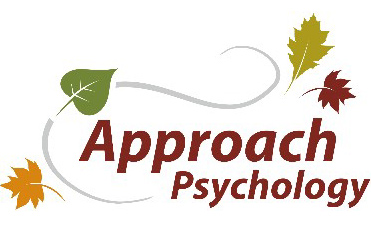Our Services
At Approach Psychology we work with child, adolescent and adult clients experiencing a wide range of psychological, emotional and behavioural difficulties, including:
Anxiety, including
- Generalised Anxiety (excessive worry)
- Health Anxiety
- Social Anxiety
- Obsessive Compulsive Disorders
- Separation Anxiety
- Panic
- Phobias
Depression
Depression is a feeling of extreme sadness and low energy that does not seem to pass and may stop you from getting pleasure from activities you would usually enjoy. It can affect sleep, appetite and concentration and may involve feeling worthless or as though there’s nothing to look forward to.
Stress
Stress is an emotional and physical response to pressure, and is common in today’s world. It can arise from many different factors and external events, and may lead to increased anxiety, irritability and low mood. It also involves physical sensations including shortness of breath, racing heart, muscle tension, restlessness and disturbances of sleep, appetite and concentration.
Insomnia & Sleep problems
Sleep is vital for all aspects of physical and mental health and wellbeing. Common triggers for sleep problems include external stressors such as environmental problems, worry related to job or school, family problems, anxiety and low mood. Cognitive Behavioural Therapy has been shown to be an effective treatment for insomnia.
Life Adjustment Difficulties
At times we are faced with major life changes. These can be considered “positive” (e.g., marriage, birth of a child, new job), or “negative” (e.g., the end of a relationship, being retrenched). Regardless of whether the changes are positive or negative, the day-to-day adjustments and new emotions experienced can be difficult to navigate, leading to an impact on quality of life.
Parenting Difficulties
There is no manual for parenting children and adolescents, and this can be one of the toughest jobs of all! Parents can often use some helpful strategies in improving their children’s compliance, managing specific parenting situations which are challenging, improving communication or building a closer connection with their children.
Social Challenges
As humans we are inherently social. As such, social challenges (which may involve social skills deficits, social anxiety, social communication difficulties, or shyness) can have wide-reaching impacts on our daily lives. Both children and adults can benefit from targeted interventions to alleviate social challenges.
Relationship Difficulties
Although at Approach Psychology we do not undertake couple or family therapy, we often work with clients individually who are having difficulties in their relationships. While every interaction (by definition) involves more than one person, if one of the people changes the way they are perceiving or communicating within situations, it can result in an overall improvement in the relationship.
Procrastination
Procrastination is the act of doing something less important, instead of a necessary task, despite potential negative consequences. It is very common in adults in the general population, and even more common in school and university students. Most people procrastinate sometimes; however, at an extreme level procrastination can severely impact an individual’s life.
Trichotillomania, Skin Picking & other BFRBs
Body-focussed repetitive behaviours (BFRBs) are repetitive self-grooming behaviours which result in damage to the body. Two of the most common types of BFRBs are trichotillomania (chronic hair pulling resulting in noticeable hair loss) and excoriation (skin picking resulting in skin damage). Other BFRBs include skin biting and nail biting.
Body Image Difficulties
Body Image difficulties involve an individual becoming overly preoccupied with a real or imagined flaw in their appearance, such that they perceive it to be far more noticeable or serious than is actually the case. At its extreme level, this may lead an individual to engage in ritualistic and avoidant behaviours resulting in serious impact on their emotional health and daily functioning.
Tourette's and Tic Disorder
Tics are recurrent stereotyped movements or vocalisations which can be suppressed at times but are very hard to resist. Tics may be Simple (i.e., an isolated movement or vocalisation) or Complex (i.e., a series of movements and/or vocalisations performed in a particular order). Tic Disorder involves motor OR vocal tics, whereas Tourette Syndrome involves BOTH motor AND vocal tics.
0478 763 163
Suite 1, Level 2 (top of stairs)
793-795 Pacific Highway
Gordon
